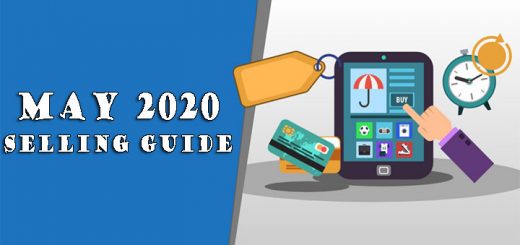How will Apple’s iOS 14.5 update affect Facebook ads for your Shopify store?
After months of anticipation, Apple started to roll out App Tracking Transparency (ATT) on iPhones all over the world last week. This is easily one of the most significant privacy changes to ever occur within the iOS ecosystem. It will take some time before the impacts are fully felt, and even longer to fully grasp their extent, but if you utilize Facebook ads for your Shopify store it’s important to be paying attention to these changes.
What is ATT?
Previously, any app installed on an iPhone could track the user with impunity outside of the app. The data these apps collect is extremely valuable, but especially so for social media apps like Facebook, which use this data to help serve hyper-targeted ads to its users. With the iOS 14.5 update and ATT, all iPhone users will by default be opted out of this tracking, and additionally apps will have to ask for permission before tracking a user’s activity outside the app.
What is the significance of this change?
Tl;dr – this is not ideal for Facebook, nor the businesses that rely on Facebook ads to drive revenue.
80% of Facebook users visit the platform exclusively on mobile, and over 50% of US visitors do so on iPhones. Needless to say, there is a huge percentage of Facebook users who will no longer be giving their data freely, and an outsized number of the folks who are most likely to buy online.
There is rampant speculation that this loss of data will make Facebook ads (and all other paid social ads) significantly less effective. Sending ads to hyper specific audiences, generating look-alike audiences (LALs), and retargeting users who’ve previously been served an ad are all tactics that have made Facebook the go-to platform for paid social ads. Running ads has made Facebook one of the most valuable companies in the world, and this is a huge threat to their cash cow. Rising CPMs have already pushed some cost-conscious marketers and small business owners away from the platform, so a drop in utility is the last thing they need right now.
What has actually changed on the Facebook ads platform?
There are a number of changes, but I believe these 3 to be the most significant:
- 7 day click, 1 day view attribution will not include opted out events. This is the big one. It basically rephrases what we discussed above- users who have opted out will not have any data collected. There was some speculation that Facebook could get around this somehow, but that does not seem to be the case.
- 28-day click-through, 7-day view-through, & 28-day view-through attribution tools will no longer be available to advertisers. This is significant, as it means advertisers will no longer be able to track actions over longer periods. This may not be all bad though, as 28 days is a crazy long time for viewed ad attribution. I can’t tell you what I had for lunch yesterday, let alone what ads I saw 28 days ago. This is worse for Facebook than it is for advertisers.
- Attribution methodology will shift from impression time to conversion time. Previously, Facebook would report a purchase as occurring on the day the ad was viewed/clicked rather than the day it was actually purchased. This also may not be so bad, as it’s a bit more accurate.
What are the results so far?
Facebook knew this was going to be bad when it was announced, but things look pretty bleak at the moment. It’s being reported that only about 5% of US users are opting in to tracking, far less than even the most conservative estimates. It’s still extremely early to make any judgements, but Facebook has to be scrambling to find a solution that will convince marketers their platform is still going to be a money maker. Facebook is clearly feeling the pain though, as they’ve been threatening anyone who’ll listen that they’re at risk of charging users if something doesn’t change soon!
What can Facebook marketers do to prepare?
- Complete your domain verification: You must verify your website domain! If you don’t verify, your ads will be paused. This can be done in your business manager.
- Choose your 8 conversion events: Going forward, you’ll only be able to configure up to 8 unique conversion events per domain. If you optimize for an event that’s no longer supported, your campaign will be paused. It is recommended that you focus on the events that are closest to your conversion (i.e. purchase, initiate checkout, add to cart, etc.)
- Turn on Facebook Conversions API: CAPI tracks what people are doing on your website more accurately than your Facebook pixel by getting its information from the server rather than the browser. If you have Shopify, setting this up is fairly simple, and will give you a secondary source of data collection.
- Focus on your Marketing Efficiency Ratio (MER): You’ve likely heard of ROAS, but allow me to introduce you to MER. Rather than just looking at your Facebook results, MER divides your total revenue by your ad spend across all channels. You end up with one blended number, and a holistic view on how your marketing spend is faring. A healthy MER can be anything from 20%-35% of revenue, but that depends on your margins and slew of other factors. Once you start tracking this consistently, you can see how budget changes on different platforms effect this.
- Build exceptional Ad Creative: Ad creative has long been the differentiating factor between good brands and great brands, but it’s about to get even more important. Now that your ability to target specific audiences will be diminished, it’s crucial that you deliver ads that are compelling to a wider audience and aesthetically pleasing.
In conclusion
Though we have very little data to go off of so far (pun intended), iOS 14.5 seems to be a very significant event that will alter how marketers use Facebook ads. In the short term, I think we can all expect performance to suffer a bit, and reporting will likely be less accurate than we’d like.
On the bright side, everyone is disadvantaged equally, so we’re all in this together. In some cases, emphasizing superior creative may even garner better results for some brands who are competing with low effort content. More importantly – Facebook is a behemoth. They didn’t become one of the largest companies on the planet by rolling over and dying when things got tough. They employ some of the smartest people available and I’m sure they’re dedicating the full extent of their resources to finding a solution.
Source: Reddit








